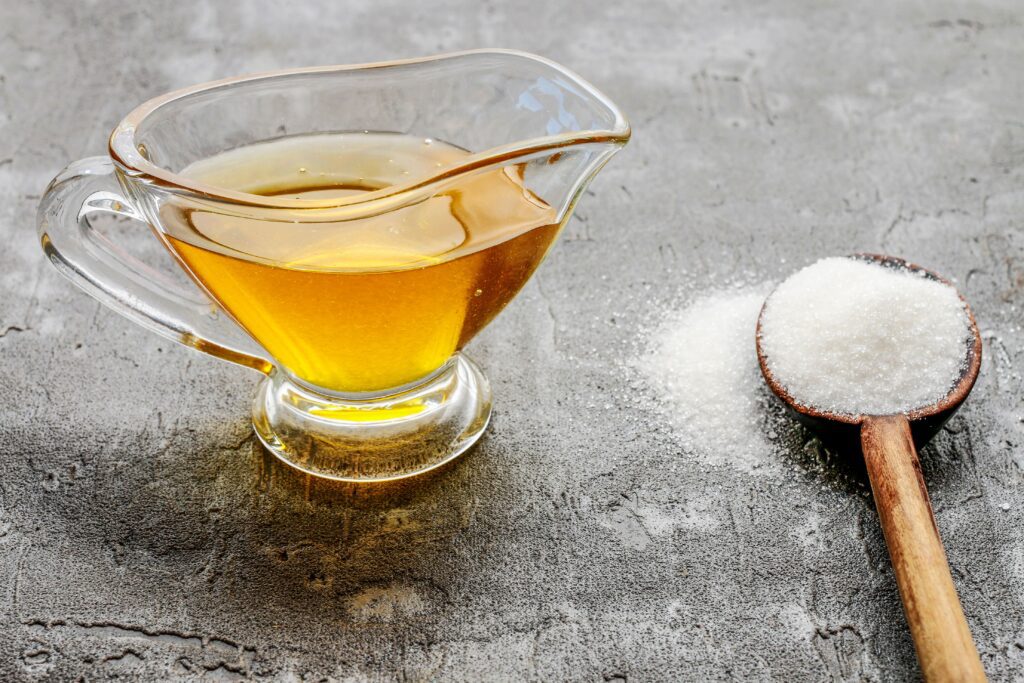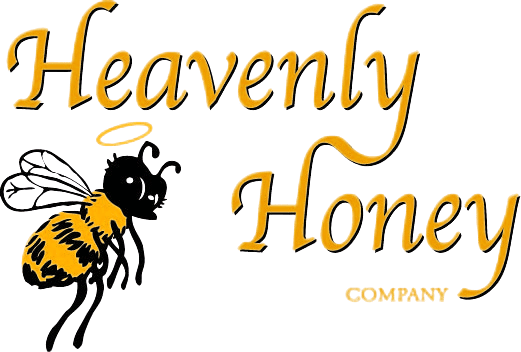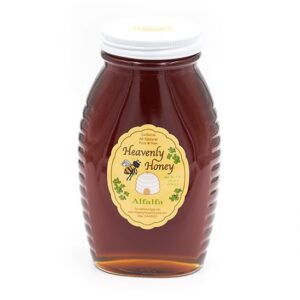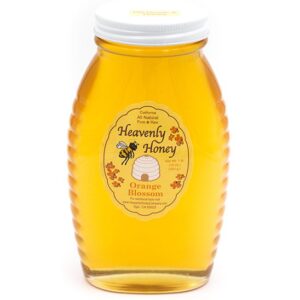
As a family-owned and operated honey company, we deeply understand the importance of choosing the right sweetener for our customers. We know that many people are looking for healthier alternatives to traditional sugar, so we want to share our knowledge about the differences between raw honey and sugar. In this article raw honey vs sugar, we will explore the properties, benefits, and drawbacks of these two sweeteners, helping you decide which one is best for you and your family.
What is Raw Honey?
Unprocessed, natural raw honey is frequently regarded as a superior alternative to commercially processed honey, primarily due to its preservation of inherent components that are either diminished or eliminated throughout the processing procedure by the larger honey packers. The natural constituents present in raw honey, such as antioxidants, enzymes, pollens and many other vital nutrients, bestow numerous health benefits upon those who consume it.
What is Raw Unfiltered Honey?
Raw unfiltered honey, often referred to as unprocessed honey, is a natural sweetener that has not been subjected to any form of processing or alteration. This type of honey maintains its original composition, including all its beneficial nutrients and natural components. In contrast, processed honey undergoes a series of treatments, most notably filtration through a diatomaceous earth system during bottling. This filtration method effectively removes pollen, enzymes, and other organic substances from the honey, resulting in a product that may have a different taste and texture than its raw counterpart.
Raw unfiltered honey is considered the purest and most natural form of honey available. In essence, it is the closest one can get to personally raising bees and harvesting honey without actually engaging in the practice. This unadulterated version of honey contains many natural components not present in processed honey, such as pollen, propolis, and wax. These elements contribute to the distinct flavor profile and health benefits associated with raw unfiltered honey.
What is Sugar?
Sugar, often referred to as table sugar, is a highly refined sweetening agent from two primary sources: sugarcane and sugar beet plants. Due to their high sucrose content, Sugarcane, a tropical grass species, and sugar beets, root vegetables are the most commonly utilized plants for sugar production.
Sugar has become ubiquitous in the culinary world, playing a significant role in various cooking and baking applications. Its unique sweet taste and ability to enhance the flavors of other ingredients make it an essential component in countless recipes, from savory dishes to delectable desserts.
Discover Nature’s Sweet Secret: Unveil the Golden Elixir!
Our Orange Blossom honey, with its delightful aroma, adds a touch of sunshine to your family’s meals. From your morning cup to delightful desserts, let its versatile charm bring joy to your table.
Meet our Raw Alfalfa honey, sourced with love from the lush Antelope Valley and Inland Empire Valley alfalfa hay farms. With its rich caramel notes, this delightful honey surprises and delights, becoming a family favorite. Its robust flavor stands up to heat, making it the perfect brown sugar and syrup alternative for your cherished recipes and breakfast oatmeal.
Embrace life’s sweetness with our family’s honey – Order Now and Cherish the Moments!
-
 Pure & Raw Alfalfa HoneyPrice range: $ 5.25 through $ 27.50
Pure & Raw Alfalfa HoneyPrice range: $ 5.25 through $ 27.50
-
 Pure & Raw Orange Blossom HoneyPrice range: $ 5.25 through $ 60.00
Pure & Raw Orange Blossom HoneyPrice range: $ 5.25 through $ 60.00
Continue reading below to learn the importance of bee pollination!
Nutritional Comparison
There are a few nutritional differences between raw honey, raw unfiltered honey, and sugar. Read more below:
Raw Honey:
- It contains trace amounts of vitamins and minerals, including vitamin C, iron, and zinc
- It provides antioxidants, enzymes, and amino acids
- Lower glycemic index (GI) than sugar
- Similar to raw unfiltered honey, but may have slightly less pollen, enzymes, and propolis due to minimal filtering; antimicrobial and anti-inflammatory properties.
Raw Unfiltered Honey:
- Contains trace amounts of vitamins and minerals, including B vitamins, calcium, iron, potassium, and antioxidants.
- It provides antioxidants, enzymes, and amino acids
- Lower glycemic index (GI) than sugar
Sugar:
- It contains no vitamins or minerals
- No additional health benefits
- Higher glycemic index (GI) compared to raw honey
- It provides a quick energy source; it is widely available and inexpensive.
Health Benefits of Our Raw Unfiltered Honey
There are many health benefits to our raw unfiltered honey, including:
- Antibacterial and antifungal characteristics: Studies have demonstrated that raw unfiltered honey possesses antibacterial and antiviral qualities, making it an excellent substitute for conventional over-the-counter medicines for minor issues such as sore throats and digestive disturbances. It can effectively fight infections and lessen inflammation, making it a natural solution for various health problems.
- Antioxidants: A unique advantage of consuming raw unfiltered honey is its ability to enhance the immune system. This natural sweetener is abundant in antioxidants and vitamins that can help strengthen the body’s defenses against illness and disease. Consistent intake of raw honey can help maintain a robust immune system and ward off various sicknesses.
- Cough relief: Research has shown that raw unfiltered honey can effectively alleviate coughs and soothe sore throats due to its soothing properties.
- Digestion: Another important benefit of consuming raw unfiltered honey is its ability to support digestive health. This natural sweetener is abundant in enzymes that can help enhance digestive processes and prevent various digestive issues. It can also help calm an unsettled stomach and promote overall gut well-being.
- Anti-inflammatory properties: Besides its antibacterial and antiviral qualities, raw unfiltered honey has anti-inflammatory properties, making it an efficient treatment for skin issues like eczema and acne. Its ability to decrease inflammation makes it an ideal natural remedy for various skin conditions and supports overall skin health.
Also Read: Can You Use Honey For Allergies?
Health Risks of Sugar
Ingesting sugar in excessive amounts can lead to several health hazards, such as:
- Weight gain: Indulging in excessive amounts of sugar can lead to significant weight gain and obesity-related health problems.
- Type 2 diabetes: Consistently consuming high levels of sugar can greatly increase the risk of developing type 2 diabetes, as it causes the body to become resistant to insulin, a hormone that regulates blood sugar levels.
- Heart disease: A strong connection has been identified between the overconsumption of sugar and an elevated risk of heart disease. This is because excessive sugar intake can contribute to increased blood pressure, chronic inflammation, and a spike in triglyceride levels, all of which negatively impact heart health.
- Tooth decay: Sugar plays a major role in tooth decay, as it acts as a fuel source for bacteria found in the mouth. These bacteria produce harmful acids that erode tooth enamel, leading to cavities and other oral health issues.
- Metabolic syndrome: Consuming a diet laden with sugar can result in the development of metabolic syndrome, a collection of interrelated conditions that include high blood pressure, elevated blood sugar levels, an excess of body fat (particularly around the waist), and abnormal cholesterol or triglyceride levels. These factors increase the risk of heart disease, stroke, and type 2 diabetes.
Raw Unfiltered Honey and Sugar in Baking
When it comes to sweetening your culinary masterpieces, the choice between raw unfiltered honey and granulated sugar can significantly impact the final product. Let’s delve into the differences between these two ingredients regarding sweetness, texture, and flavor.
- Sweetness: Raw unfiltered honey boasts a more potent sweetness than granulated sugar, necessitating a smaller quantity when substituting it for sugar in recipes.
- Texture: Using raw unfiltered honey in baking yields a denser and more moist result than employing granulated sugar.
- Flavor: The distinct taste of raw unfiltered honey enriches the flavor of baked goods, whereas granulated sugar imparts a milder, more understated sweetness.
Sweetening Beverages
Elevate your drink experience by using our raw unfiltered honey to sweeten your beverages, including:
- Tea and coffee: Our raw honey can add a unique flavor profile and natural sweetness to tea and coffee. At the same time, sugar provides a more neutral taste.
- Smoothies and shakes: Our raw honey can enhance the nutritional content of smoothies and shakes, while sugar merely adds empty calories.
Also Read: There’s 101 Ways To Use Honey, Here’s The First 10!
Cost Comparison
When considering a natural sweetener, the price point can be crucial for many consumers. Our family’s raw unfiltered honey tends to have a higher price tag than conventional sugar. Still, there is a good reason behind it. The intricate and time-consuming nature of honey harvesting and its limited production contribute to this elevated cost. Despite this, the exceptional health benefits and the distinctive taste of our raw unfiltered honey make it a worthwhile indulgence for discerning consumers who seek quality and nutritional value in their sweeteners.
Environmental Impact
- Beekeeping: Our family’s beekeeping practices have long been guided by a deep appreciation for the natural environment and bees’ critical role in the ecosystem. By maintaining healthy and robust bee populations, we contribute to increased biodiversity and support the pollination of various plant species. This is essential for producing a wide array of fruits, vegetables, and nuts, many of which rely on pollination to propagate and thrive.
- Sugarcane and sugar beet farming: The cultivation of sugarcane and sugar beets, while economically beneficial, can pose various environmental challenges. These crops often require large tracts of land for cultivation, which can contribute to deforestation and habitat loss when forests are cleared to make way for agricultural expansion.
Food For Thought: Be sure to look at the source of the honey before you purchase. As much as possible, try to buy honey produced locally (within a 100 mile radius of your home). Doing this results in a smaller “carbon footprint” of production. Think about it, honey that comes from Brazil and Argentina and Vietnam must travel on planes and ships which inevitably leave a much larger footprint than a locally produced honey will, considering the beekeeper probably only runs one or two trucks to make our local honeys.
Also Read: Pollination: The Bee’s Integral Link in Our Food Chain
Raw Honey vs Sugar Conclusion
In conclusion, our raw unfiltered honey is superior to sugar due to its natural and wholesome qualities. It provides a distinctive flavor profile and offers various nutritional advantages. Although it may have a higher price point, the benefits for personal health and the environment make it a valuable alternative for those searching for a healthier option than sugar.





